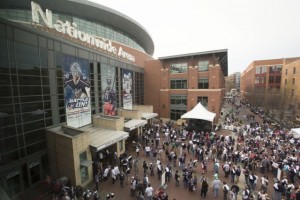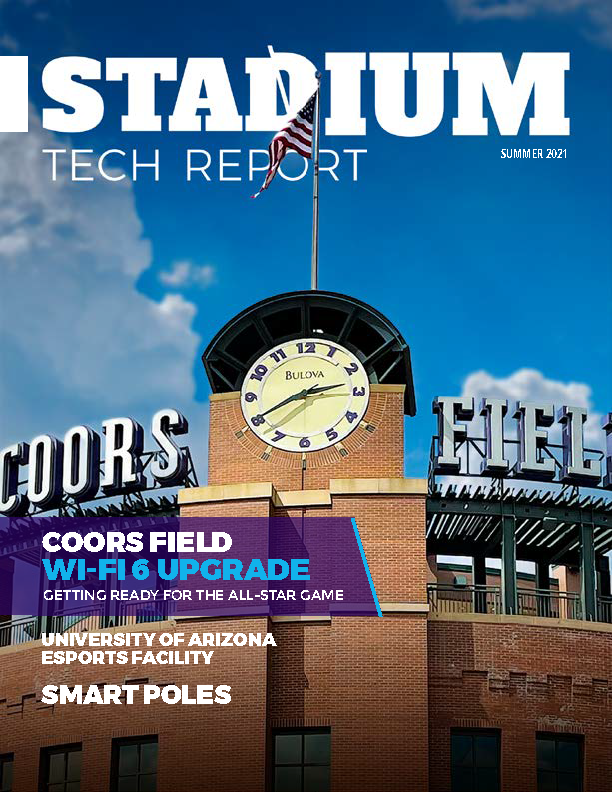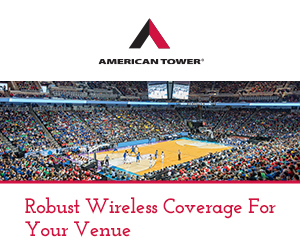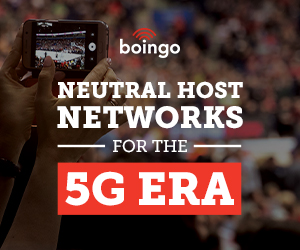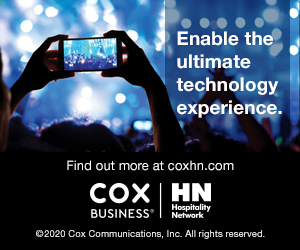A fairly common option in the world of enterprise networking, the ability to rent, or lease a fully operational Wi-Fi network may soon be coming to the world of sports stadiums and other large public venues, if it isn’t here already. Three of the largest Wi-Fi gear suppliers, Cisco, Aruba and Ruckus, already have public offers of network leasing arrangements, where venue owners could pay some kind of monthly or recurring fee for network setup and operation, instead of buying equipment outright. And Cisco, another leader in the marketplace, is rumored to be offering full-control lease-type arrangements for stadium Wi-Fi networks, possibly beginning with the new Wi-Fi network being built at the SAP Center in San Jose.
Though no large sports stadium has yet publicly announced a deal to lease, or in networking lingo, to buy a “Network as a service,” or NaaS, the idea is potentially attractive to stadium owners and operators, many of whom have struggled with the return-on-investment question ever since the idea of putting wireless networks in stadiums has emerged. While cellular carriers have so far borne the lion’s share of the costs of deploying enhanced cellular systems like DAS (distributed antenna system) in stadiums, the question of “who will pay for the Wi-Fi” is still a big one for many venues, especially those that are only filled several times a year.
The benefits of moving to opex vs. capex
Bart Giordano, vice president of business development for the Ruckus business unit at Brocade, said the idea of leasing a stadium network could be attractive especially to venue owners who don’t have the upfront capital necessary to pay for Wi-Fi, a cost that could run into the tens of millions of dollars.
Under new parent Brocade, Ruckus Wi-Fi gear can be obtained via something called the Brocade Network Subscription, a NaaS program that Giordano said “converts it all to opex — you subscribe to the network and pay a monthly service fee.” Under the subscription program, Giordano said Brocade/Ruckus will actually own the equipment, allowing the venue owner the flexibility of being able to return it or upgrade it as needed.
With many stadiums that deployed Wi-Fi several years ago already going through significant upgrades, the idea of a leased network that could be more easily refreshed with new technology might soon gain favor. Though no Ruckus stadium subscribers have yet been announced, Giordano said “some are coming.”
Aruba, now a Hewlett Packard Enterprise company, has a similar subscription model plan for enterprise wireless deployments, one which company representatives said could be used by stadiums as well. Both companies said such deals could possibly come via consulting partnerships, where the consultant firm manages the relationship and deployment/operation details.
Cisco also has a leasing option available for wireless networks, but so far has not made any public announcements of such deals in the sports stadium marketplace. However, there are reports of Cisco taking a more active role in the ownership, deployment and operation of stadium networks, like the Cisco-powered Wi-Fi currently being installed at the SAP Center in San Jose, home of the NHL’s Sharks. So far, neither Cisco nor the Sharks will comment on any business specifics of the new Wi-Fi network other than its use of Cisco gear.
Can leasing work for stadiums?
While the leasing idea for stadiums isn’t new, the business model has met some challenges along the way of the short history of wireless networks in large venues. So far, third-party integrators like Mobilitie, ExteNet Systems and Boingo have crafted lease-like deals in which the venue does not pay the full cost of the network but instead allows the operators to run networks (typically both DAS and Wi-Fi), earning money by leasing space on those networks to wireless carriers or by selling advertising or sponsorships.
Another leasing model, one that crashed and burned, was the one employed by SignalShare, a company now in bankruptcy proceedings with legal claims of fraudulent business practices against it. SignalShare, which also offered venues networks for a monthly cost, may have been hampered by a lack of financial resources, something that shouldn’t be an issue for companies the size of Cisco, HP and Brocade, who will mainly be offering leases on equipment they manufacture themselves. The larger equipment vendors may also not be under as much pressure as SignalShare was to earn revenues on the network operations, which may make them better able to succeed in the NaaS space.
And while the idea sounds good in theory, there are still unanswered questions about how the leases would work, and whether they will make good business sense for both sides. Unlike enterprise operations in traditional offices, stadium networks are far more complex to install and operate, especially those being retrofitted in stadiums built decades ago. Stadium networks also have a much different operational profile, with traffic coming in large spikes rather than daily workday routines.
But stadium networks can also act as public advertisements of sorts, gaining more attention for vendors in PR than perhaps in direct profits. As the market matures and vendors seek out potential customers who have shied away from Wi-Fi in the past due to upfront costs, leasing may be a way forward for both sides — as long as both can find a benefit to the deal.
